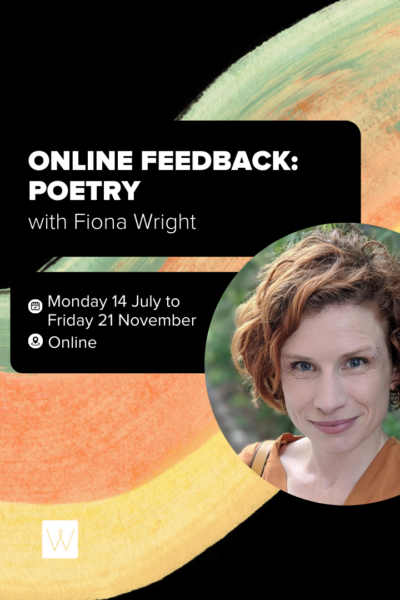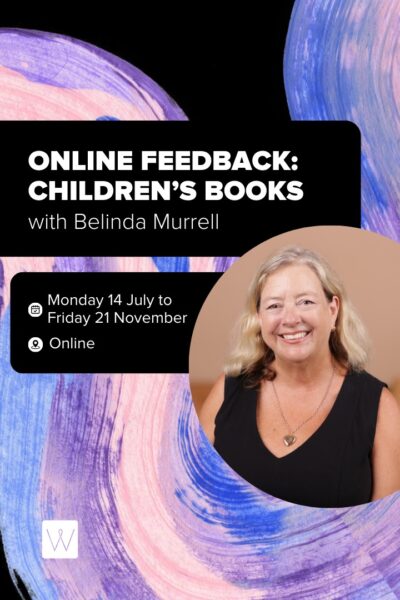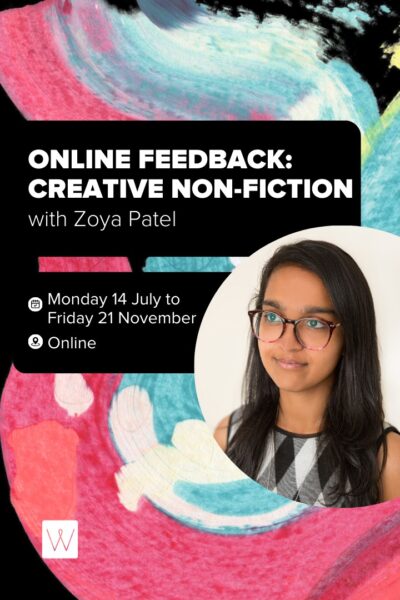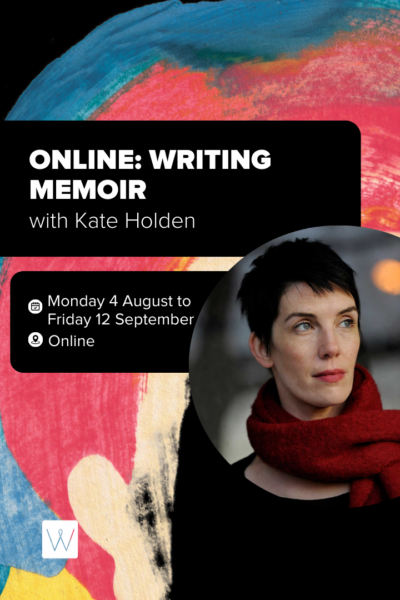Online: Editing for Writers
 Pamela Hewitt
Pamela Hewitt
Monday 17 June to Friday 26 July 2024, online
Full Price: $660
Member: $495
Conc Member: $430
This course has started. Sign up for our waitlist here to find out when it’s running again. In the meantime, check out our list of current courses or sign up for our Newsbite weekly newsletter for updates.
This writing course, Online: Editing for Writers with Pamela Hewitt, takes place online.
You’ve written the end on the last page of your manuscript. Now what?
In this online editing course for writers, Pamela Hewitt walks you through the next part of the journey. We analyse structural, stylistic and presentational problems, exploring strategies to improve them. We go behind the scenes, demystifying the editing process and providing practical techniques for taking your text to the next stage of writing quality. We investigate the levels of editing, and how to identify and deal with common issues in unpublished manuscripts. We also take a realistic look at trends in editing for digital publishing. You will return to your manuscript with new eyes and fresh ideas.
Editing for Writers includes content on cultural diversity and sensitivity, the latest on developments in artificial intelligence, and trends in contemporary fiction.
Is this online course right for you? Read our FAQ before enrolling>>
This six-week online editing course with Pamela Hewitt is aimed at writers of fiction and narrative non-fiction who wish to develop their editing skills and techniques, and apply it to their work. Please expect to dedicate a minimum of 3-4 hours to coursework each week. This includes reading, responding to discussions, writing, revising and providing peer feedback.
It is designed for writers who want to improve their manuscripts with an aim to secure a publishing contract or self-publish. Using practical examples and sample texts, participants will learn what is needed to present a professional manuscript in a competitive and globalised publishing industry. Participants will receive resources for further skill development and weekly feedback on course topics.
Week-by-Week Course Breakdown
Week 1: Structural editing
When you restructure a piece of writing, the whole text is up for grabs. Structural editing is a creative means of reimagining the shape, balance and flow of a text. We look at where to start and where to end, characterisation and perspective.
Week 2: Style and line editing
This week covers matters of style. We identify words and phrases that lift a text and those the manuscript is better off without. We also introduce the fundamentals of copyediting and proofreading to tighten language and eliminate errors and inconsistencies. A well presented manuscript increases your chances of finding a publisher and delighting readers.
Week 3: Plain and simple
Like food, language appeals most when it’s fresh and varied. Whatever the writing technique, there is a relationship between clear writing and clear thinking. We also look at brilliant exceptions to the precepts of plain English approaches.
Week 4: Brave new world of digital media
The screen is different from the page and so editing techniques need to be targeted to both format and device. We look at ground-breaking writing using digital techniques, including large language Artificial Intelligence models like ChatGPT, and the skills writers need to keep up with digital media and publishing developments.
Week 5: Grammar and punctuation for writers
This lesson takes the anxiety out of grammar and punctuation and provides the tools and confidence to avoid common mistakes. We also consider ways grammar is evolving and analyse contemporary trends in punctuation and presentation of manuscripts.
Week 6: Edit your story
The final week ties together all that we’ve learnt using excerpts from various genres. Participants will also receive tailored feedback on editing solutions. They can choose an excerpt of their own writing or a sample text to identify problems and find ways to improve the draft.
Expected Learning Outcomes
Participants will:
- Develop the skills to approach fiction and non-fiction texts with the eye of a professional editor, including differentiating the three main levels of structural editing, copyediting and proofreading
- Identify the flaws most commonly encountered in unpublished texts and develop techniques to improve them, enhancing readability and publishability
- Enhance skills as writers operating in a globalised, digital media environment.
Participant Requirements
Internet access and confidence using basic computer software are essential for this program. Please read our FAQ before enrolling.
You do not need to log into the course at a specific time and there are no live meetings. You will receive an email with an invitation link to join the online classroom a week before the course starts.
- Participants may have a complete draft of a fiction or non-fiction manuscript but this is not essential.
- Participants should have a high level of language skills and basic competency in word processing.
Please expect to spend a minimum of three to four hours per week on the course, noting that the amount of time needed to read, respond to discussions, write, revise and critique will vary from person to person. To get the most out of this course, we recommend logging in at least once a week. You don’t need to log in at a specific time.
- You can complete the lesson material in your own time.
- There will be assignments which have deadlines. To be guaranteed tutor feedback, you will need to complete the assignments by the deadline.
If you have any questions, please contact us.
Reviews
‘Pamela Hewitt was gracious in her feedback, as were the other participants. I thank them and Writing NSW for their help in getting through the course.’ — Harold, 2023
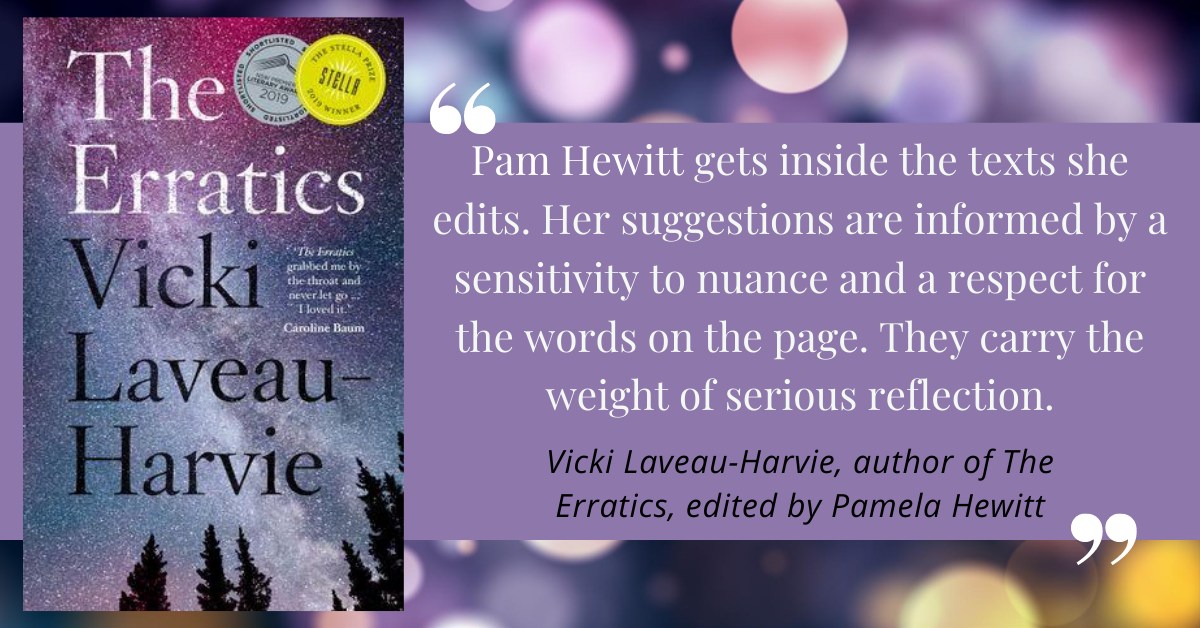
More from Writing NSW
Check out our full range of online writing courses and our feedback programs to see how we can help you on your writing journey. Find out about our writing groups across NSW, and sign up to our weekly newsletter for writing events, opportunities and giveaways.



